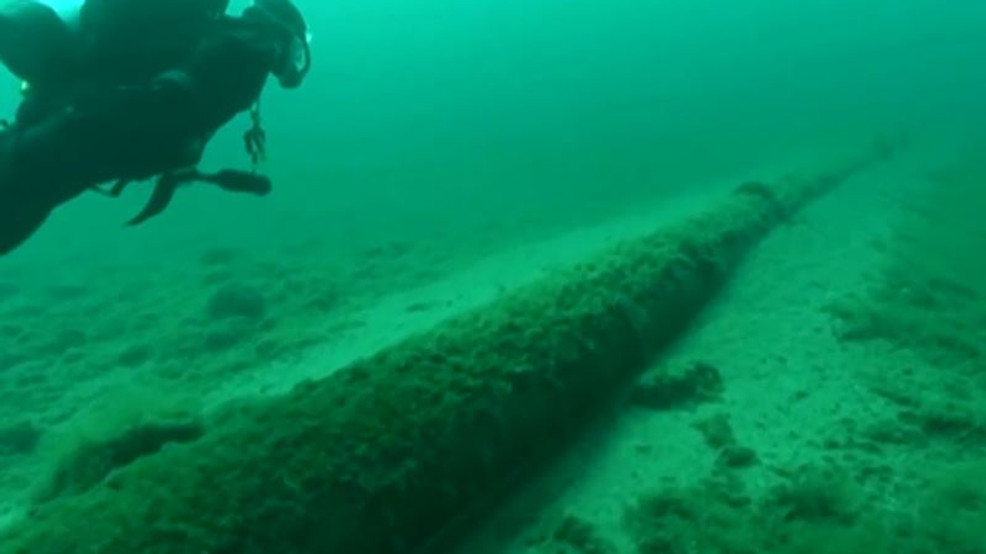Minnesota
Intertribal agency faults Wisconsin review of Enbridge oil pipeline reroute

SUPERIOR, Wis. (AP) — An intertribal agency says Wisconsin’s draft environmental review for a planned reroute of an oil and gas pipeline across northern Wisconsin is incomplete and flawed.
The Wisconsin Department of Natural Resources released its draft environmental impact statement on Thursday for a roughly 40-mile (64-kilometer) reroute of Enbridge’s Line 5 in Ashland and Iron counties. The pipeline carries up to 23 million gallons (87 million liters) of oil and natural gas liquids per day from Superior, Wisconsin, through Michigan to Sarnia, Ontario.
Enbridge, a Canadian company, is seeking to move the pipeline after the Bad River Band of Lake Superior Chippewa sued the company in 2019 to shut it down and remove it from their reservation.
The proposed reroute is expected to cross nearly 200 bodies of water and temporarily affect 135 acres (55 hectares) of wetlands. Enbridge says the nearly 70-year-old pipeline is a vital link to fuel across the region.
Wisconsin Public Radio reports that the Great Lakes Indian Fish and Wildlife Commission, which represents 11 Ojibwe tribes, told the DNR in a Dec. 10 letter that the state’s review has significant gaps in information.
The commission says it doesn’t have enough data on the effects an oil spill would have on downstream waters, including Lake Superior. They also say it doesn’t assess compliance with the Bad River tribe’s water quality standards or combined impacts of other projects.
“There really needs to be a thorough description of the risks being posed by putting this pipeline around the reservation … and Enbridge does not have a great history with spills,” said John Coleman, the commission’s environmental section leader.
Enbridge was responsible for one of the nation’s largest inland oil spills in July 2010 that contaminated nearly 40 miles (64 kilometers) of the Kalamazoo River in Michigan and cost more than $1.2 billion to clean up. More recently, Minnesota regulators fined the company $3 million for failing to follow the state’s environmental laws after Enbridge pierced a groundwater aquifer during construction of Line 3, releasing at least 24 million gallons of water.
Line 5 has had around 30 spills that have released more than 1 million gallons of oil and natural gas liquids on land since 1968, according to federal pipeline safety data obtained by the National Wildlife Federation.
The draft review says an oil spill to nearby surface waters like the Bad River would temporarily impair water quality for weeks to months. The analysis said it’s unlikely a large oil spill would reach the lake “since much would become trapped in sediments and vegetation at the river bottom, along stream and riverbanks and in wetlands before reaching this far downstream.”
The commission added the agency’s review appears to exclude alternatives based on Enbridge’s analysis, includes problems with reference to treaty rights along the route, lacks sections on water quality, and details incorrect route location and mapping.
Ben Callan, the DNR’s integration services section chief, declined to comment on the commission’s remarks. He noted the agency intends to review all comments to update, clarify or correct any information.
The company said in a statement Friday that it’s pleased the reroute is moving forward.
“Agreement has been reached with all private landowners along the 40-mile (reroute), chosen because it minimizes environmental impacts and protects critical resources,” wrote Michael Barnes, an Enbridge spokesperson. “We will move forward with construction once all necessary permits are received.”
Labor unions and the state’s largest business lobby have backed the project and argued the line’s shutdown would negatively impact businesses and residents in Wisconsin. They’ve highlighted the 700 jobs it would bring.
Enbridge is currently fighting efforts by the state of Michigan to shut down Line 5 in the Great Lakes. The pipeline provides around 65% of the propane supplied to residents in Michigan’s Upper Peninsula and around 55% of the state’s propane fuel.

